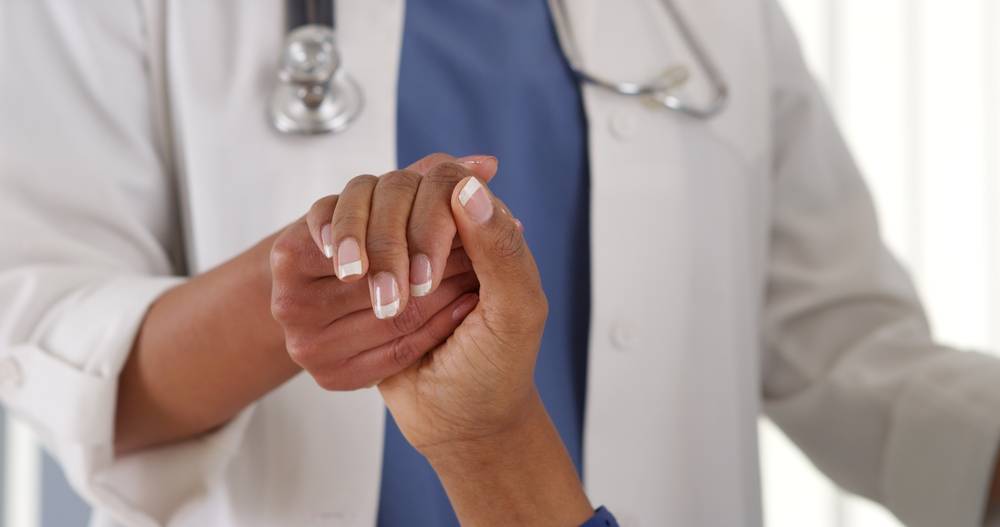*Please be advised that this blog contains brief descriptions of prescription drug use and might be triggering to some readers. Being in recovery and having surgery can be scary. But it does not mean relapse will happen. Taking pain medication as prescribed as well as holding myself accountable and understanding how the brain works with opiates is what helped me. On June 2nd of this year I had surgery on my left hip to repair a significant tear and to smooth out some bone spurs inside my joint. I was prescribed to take 5 mg oxycodone every 4 to 6 hours. My routine was taking one at 5 AM, 9 AM, 1 PM and the last one of the day at 5 PM. At no point did I find myself looking at the clock and counting down until the next time I could take one. I used oxycodone for the first two weeks and then I transitioned down to Tylenol #3. I have not experienced any issues with triggers or cravings to be high from opiates. It was enlightening to be able to take this medication, as medicine that was just doing its job. It was taken to maintain and reduce pain. I was not taking it to “get high” and I didn’t feel high after taking it. It did not make me feel like it used to make me feel when I was in active addiction. I am now three weeks post-surgery. The past 24 hours I have not had to use crutches primarily. I am gaining more strength and able to lift my leg where I have not been able to lift my leg more than 3 inches in the last seven months. Unfortunately, because of being on crutches for several months, the carpal tunnel in my hands now must be surgically repaired. Therefore, in July I will be having double carpal tunnel surgery, which means being given pain medicine again. However, this procedure is going to be a whole lot easier and require only a few days of pain medicine, if anything at all. Whenever someone has a serious surgery, it is customary that they speak to the anesthesiologist before “going under”. This is where I pull from my recovery tool belt. Utilizing the same skills to project transparency (honesty, openness) in my recovery – I make sure to inform the medical staff of me being in recovery and the rules that I have set for myself regarding medications. This usually opens up an amazing dialogue and the medical person will share a personal tidbit about a family member that has struggled. It creates a positive dialog. I always inform the nursing staff and the anesthesiologist to wait until I am asleep to give me any IV pain medicine. Fentanyl is often used in a surgical setting because of its long-lasting half-life. But that can trigger some thing or even create a first for some. So, part of my self-protection and awareness, I ask to have IV pain medicine administered after I am asleep. After surgery, instead of giving me another round of IV pain medicine, I asked them to give me an intramuscular shot instead so that there is no real rush felt. Then once I get home, I wait until I’m actually experiencing any pain before I start to take any additional pain medication. It’s so important to understand how the brain works when taking opiate medications. When I came to BrightView I started to learn things about how the brain operates because of opiates and other substances. I learned about receptors and I learned about different medications and how they interact with the brain. I learned that it’s important to have transitions instead of completely stopping medication at once. That is what works best for me, stretching it out over time. My injury happened in December 2019. I could have easily used that as a reason to begin pain management treatment. But instead I decided to treat my pain before surgery with Tramadol. Because of its design and blocking euphoric effects. Again, doing its job and relieving the pain. Having a positive outlook however, and prayer have been absolutely imperative for me throughout this time. This surgery has changed my life in more ways than one. But it did not have to change my recovery. In fact, it has made it stronger! It has proven to me that I have the recovery skills to navigate incredibly choppy and unpredictable waters and come out on dry land. If you are in recovery and experiencing medical issues or pain issues and are scared about how to be treated or what to do, reach out to a Peer Recovery Supporter like me. BrightView is a wonderful place that understands how easy it is for an addiction to be developed after surgery. If you or a loved one have experienced dependency or addiction after an injury or surgery and/or being prescribed pain medicine, call us or come in and see us and we can get you the help that you deserve! This blog was written by one of BrightView’s Peer Recovery Support Specialists and Community Outreach Managers, Amy Parker.

June 25, 2020